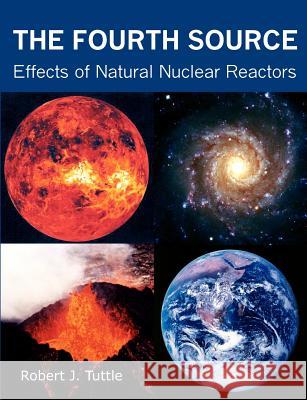The Fourth Source: Effects of Natural Nuclear Reactors » książka
The Fourth Source: Effects of Natural Nuclear Reactors
ISBN-13: 9781612330778 / Angielski / Miękka / 2012 / 580 str.
This book describes how the effects of natures own nuclear reactors have shaped the Earth, the Solar System, the Universe, and the history of life as we know it. It focuses on observed effects that are poorly explained by our standard theories, identifies certain errors in those theories, and shows how these effects are caused by natural nuclear fission reactors. The theory of Plate Tectonics is wrong, and it is shown that expansion of the Earth causes continental drift. A physically reasonable mechanism is proposed for expansion and observational data are presented to show that this occurs. Evolution is explained as punctuated equilibrium, with mutations caused by abrupt surges of radiation, and related life forms that have been interpreted as seperate species are actually the result of radiation injury. This view is particularly effective as applied to humans. The ability of the dinosaurs to live so large is explained by use of Earth Expansion and a more massive atmosphere to provide buoyancy and effective transpiration of oxygen. These effects also explain how pterodactyls and ancient birds could fly. Expansion induced by impacts at the end of the Cretaceous caused the atmosphere to thin and the dinosaurs collapsed. Analysis of geological and biological data supports this. The astronomical distance scale is shown to be wrong, based on the misconception that trigonometric parallax is an absolute measurement. It isnt, and the method is led astray by the overwhelming number of asteroidal fragments masquerading as stars. The measurements of an expanding Universe are shown to be in error, and an expanding Universe is not needed by an alternative interpretation of Einsteins equations. This interpretation is based on the equal creation of matter and antimatter, which is known to occur. Spiral galaxies are not vast Island Universes of stars as we have thought, but are shown to be the strewn fields of debris from the nuclear fission detonation of distant planets.The Universe is not made up of 96% Dark Matter and Dark Energy, but is instead very ordinary. Abundant evidence and references provide support for all these interpretations. This book opens new opportunities for research by correcting several fundamental errors in our concepts of the Earth, Life, and the Universe.











